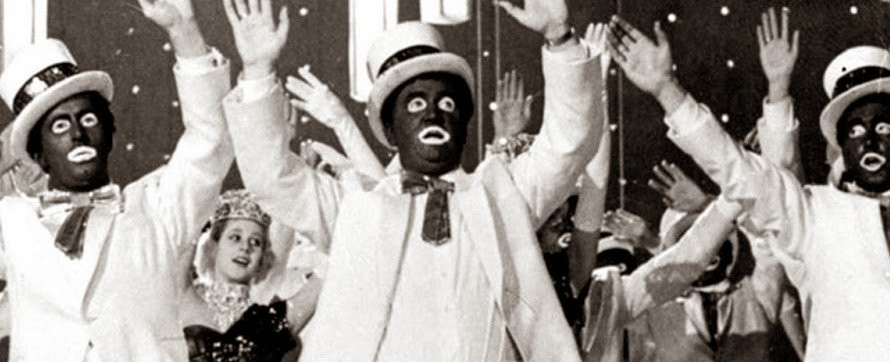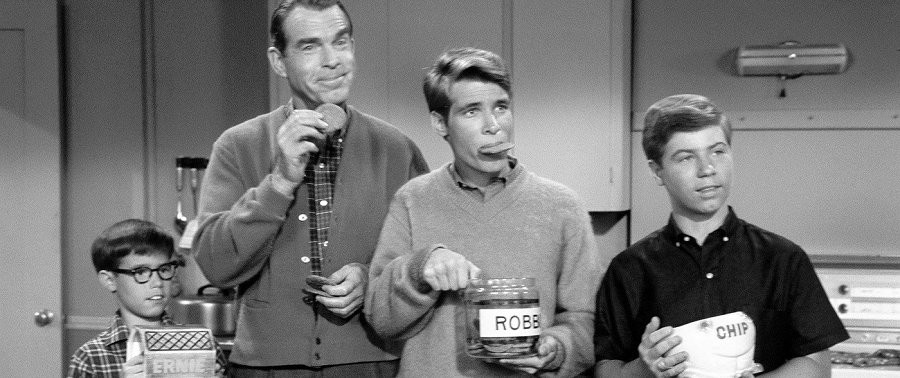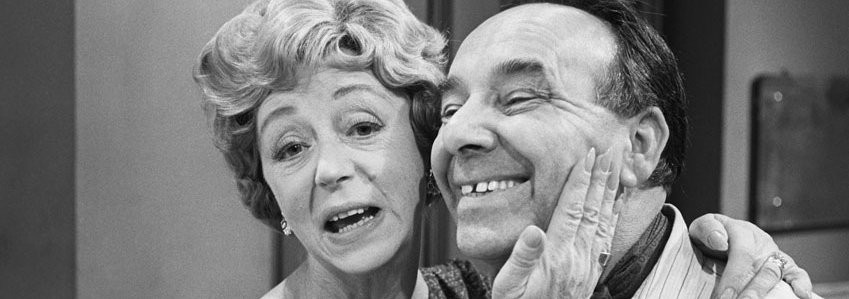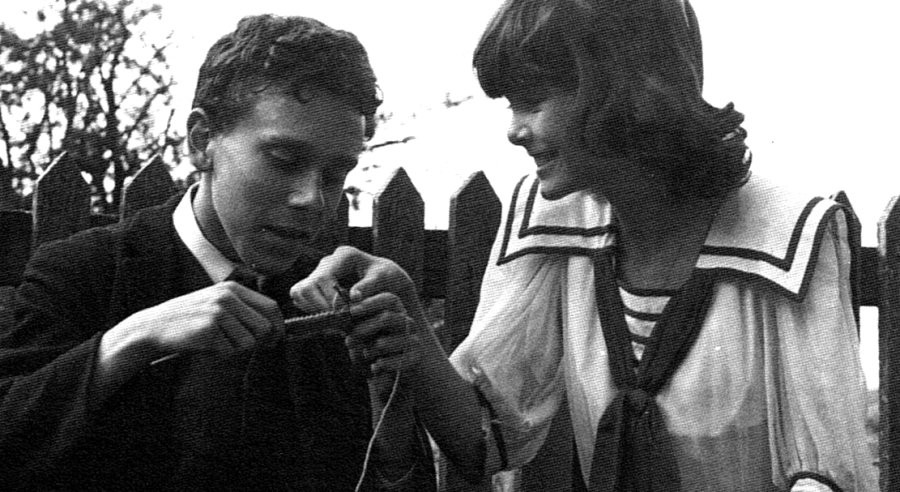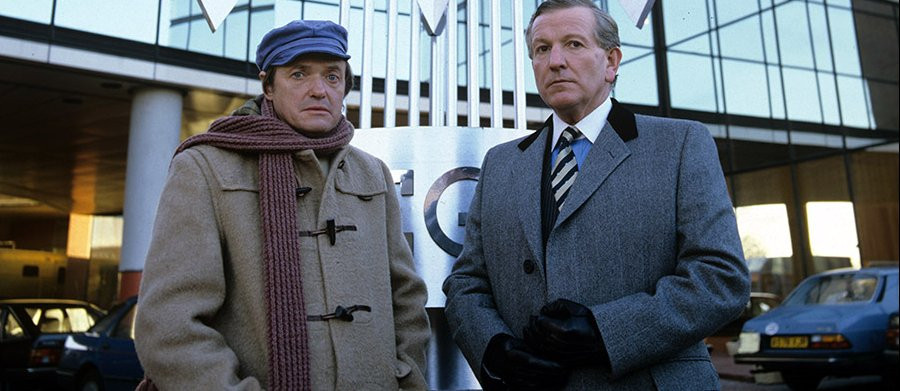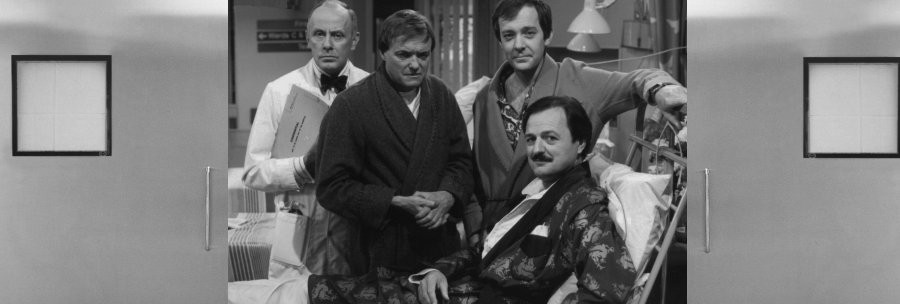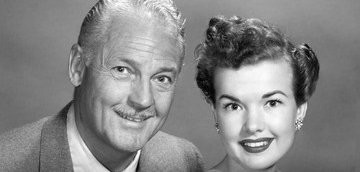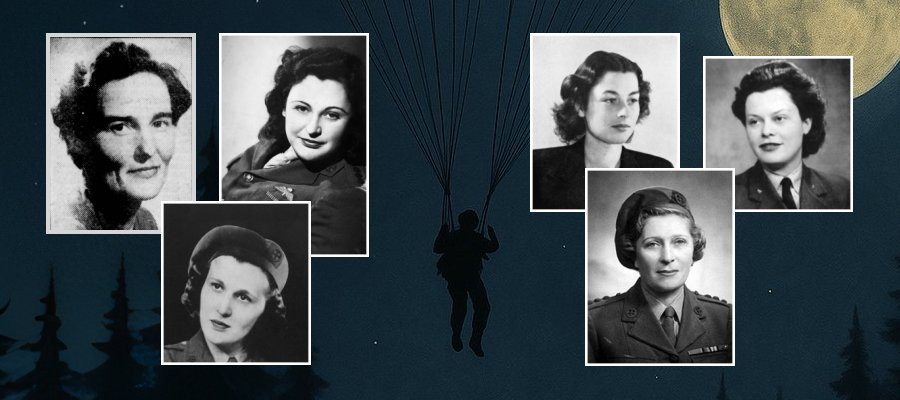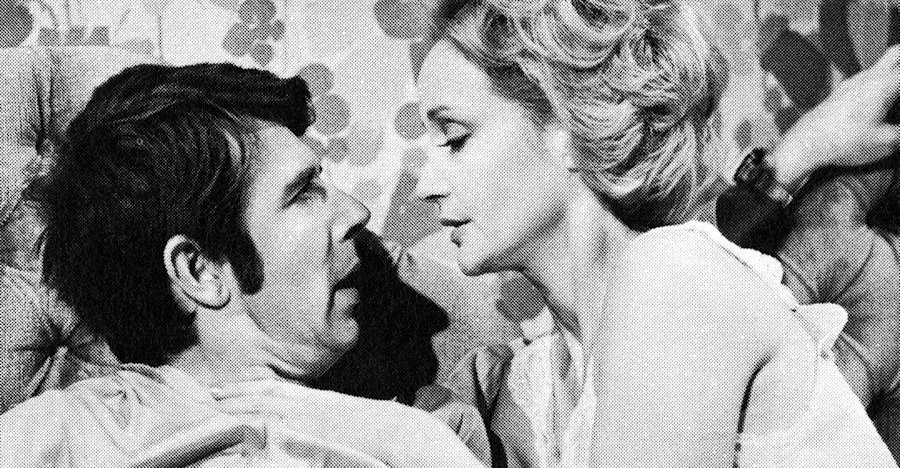
My Good Woman
1972 - United KingdomSylvia Gibbons (Sylvia Syms) is a fanatical charity fund raiser. Much to the displeasure and frustration of her antique dealing husband, Clive (Leslie Crowther), all she ever collects is donated to good causes and all the spare time she has is used for helping the less fortunate. As a result, their life together is somewhat barren and Clive seeks solace in the company of his next-door neighbour, Philip Broadmore, and later with skirt-chasing bachelor friend and darts player Bob Berris. But Clive does not seek comfort from other female company because in spite of it all he is still very much in love with his wife.
My Good Woman was the first ITV sitcom for Crowther who to a generation of children was the perenial host of the long-running children's institution, Crackerjack. Born in Nottingham on 6 February 1933, Leslie was the son of a stage actor by the same name. At an early age he learned to play the piano and soon found work on BBC radio before going on to become one of the famous Ovaltiney's*. In 1960 he joined the Crackerjack team and built up something of a comedy double-act with Peter Glaze that lasted until he quit the series in 1968. At this point he broke away from being a children's presenter and increased his reputation as an all-round entertainer by hosting the BBC's popular variety The Black and White Minstrel Show.
Leslie had appeared in a Comedy Playhouse episode The Reluctant Romeo in 1966 and this was later made into a full series but it didn't click with the viewers. Then in 1970 he was lured away from the BBC by London Weekend Television and given a series of 'stand-up' shows called Crowther's In Town. This was followed the next year by The Leslie Crowther Show in which the amiable host would perform a number of sketch routines alongside Arthur English, Chic Murray and Albert Modley ("Eee it's grand to be daft!"). The series also boasted a number of guest stars such as Dickie Henderson, Jimmy Edwards, Dora Bryan and Larry Grayson (who was making his TV debut). From the 1970s, Leslie also achieved renown as the face of Stork SB Margarine for whom he appeared in a number of memorable television commercials. Always a great supporter of charities, Leslie met Sylvia Syms at a fund raising event and this was the basis for the sitcom that proved popular enough to run for five series from 1972 to 1974. It was Syms first TV comedy of any kind and it also gave a debut to Richard Wilson, who as the Reverend Martin Hooper was always the beneficiary of Sylvia's tireless charity work in the series.
In the 1980's Leslie Crowther became known as a games show host being chosen as the personality to introduce the British public to the US import The Price is Right and later still he introduced viewers to musical soundalikes in Stars In Their Eyes. But two years into the series Leslie was returning home late at night from a charity event when he was almost killed in a car crash. The accident was so serious that he remained in a coma for 17 days and required brain surgery to remove blood two clots. Although he appeared occasionally on television after that it was quite clear that his days as a performer were over. In 1993 Leslie was awarded the CBE in the New Year's Honours list in recognition of his years of charity work and went to Buckingham Palace to collect it in July on that year. Then, in 1994, shortly after publishing his autobiography, "The Bonus of Laughter", Leslie retired from show business. He died from heart failure on 29 September 1996, aged 63, with his wife Jean and family at his side. In October the BBC screened Leslie Crowther - A Tribute, which remembered both his versatility and likeability. In the hearts of the British public, to a generation and more, Leslie Crowther was one of our best-loved performers.
*Ovaltineys or League of Ovaltineys was a children's club developed in the 1930s to promote the sale of Ovaltine brand drink in the United Kingdom. The club, founded in 1935, had its own radio show on Radio Luxembourg, sponsored by the manufacturer. It achieved 5 million members in 1939.
Seen this show? How do you rate it?
Seen this show? How do you rate it?
Published on January 9th, 2019. Written by Laurence Marcus (2006) for Television Heaven.


